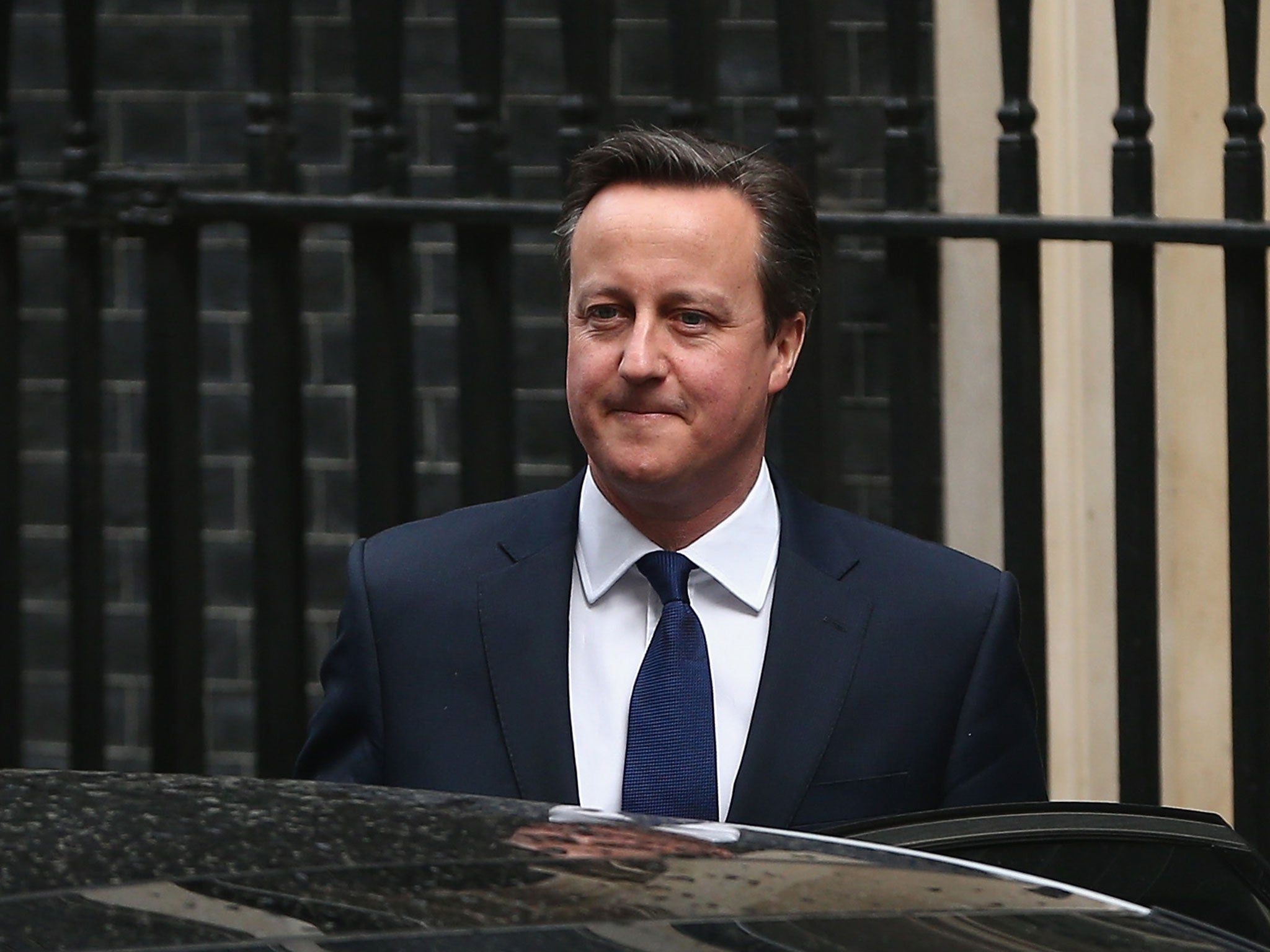David Cameron rejects growing Tory demands to limit the impact of harsh cuts to tax credits
The Prime Minister dashed hopes that the Autumn Statement next month could limit the impact of the cuts

Your support helps us to tell the story
From reproductive rights to climate change to Big Tech, The Independent is on the ground when the story is developing. Whether it's investigating the financials of Elon Musk's pro-Trump PAC or producing our latest documentary, 'The A Word', which shines a light on the American women fighting for reproductive rights, we know how important it is to parse out the facts from the messaging.
At such a critical moment in US history, we need reporters on the ground. Your donation allows us to keep sending journalists to speak to both sides of the story.
The Independent is trusted by Americans across the entire political spectrum. And unlike many other quality news outlets, we choose not to lock Americans out of our reporting and analysis with paywalls. We believe quality journalism should be available to everyone, paid for by those who can afford it.
Your support makes all the difference.David Cameron has rejected growing demands from Conservative MPs for him to soften the blow from the huge cuts in tax credits that will take effect next April.
The Prime Minister dashed hopes that the Autumn Statement next month could limit the impact of the cuts, amid fears that the Government will alienate “strivers” and undermine the Tories’ claim to be “the party of the workers.” Critics warn that 3.2m low paid workers will lose an average of £1,350 a year.
Asked if there would be a rethink, Mr Cameron said: “No, we think the changes we have put forward are right and they come with higher pay and lower taxes.”
In a report published on 5 October, the Resolution Foundation think tank said that George Osborne’s plans to raise the national minimum wage to £9 an hour by 2020 would tackle Britain’s low pay problem, but warned that it would not compensate for the tax credit cuts. The severe losses faced by households in the bottom half of the income scale will be reduced by just 13 per cent, its study found. Matthew Whittaker, the foundation’s chief economist, said: “While it is welcome to see progress being made on low pay, the wider picture on living standards is more troubling. Many working households will find themselves worse off, even as the national living wage improves their pay, as a result of the tax credits cuts announced alongside it. It’s important the Government doesn’t miss the bigger picture on living standards.”
But Mr Cameron told the BBC’s Andrew Marr Show: “ We are protecting the lowest paid people with child tax credits and what goes with it but we are moving to an economy where you get paid more and where you pay less in tax, rather than paying more in tax and getting the money back in tax credits. That is a better system.”
The Prime Minister added: ”We have had the vote in Parliament on tax credits and I think people respect this argument that the national living wage - a 50p increase next year, so a £20-a-week pay rise, rising to £9 [an hour] by the end of this Parliament - that is a very significant change that really helps to make work pay rather than a tax credit system that recycles money back to people.”
He said: “If you don't tackle excessive welfare and make reductions there you have to either put up people's taxes or cut the NHS or cut education, which I don't want to do.”
Frank Field, Labour chairman of the Commons Work and Pensions Select Committee who has pressed for a U-turn, was “disappointed” by Mr Cameron’s remarks but believed the Prime Minister could yet be forced to back down. He said: “Mrs Thatcher said she wasn't for turning, but she turned. Watch this space.”
Jonathan Ashworth, the shadow Minister without Portfolio, said: ”David Cameron has shown that his promises to stand up for working families are a complete farce.”
Join our commenting forum
Join thought-provoking conversations, follow other Independent readers and see their replies
Comments